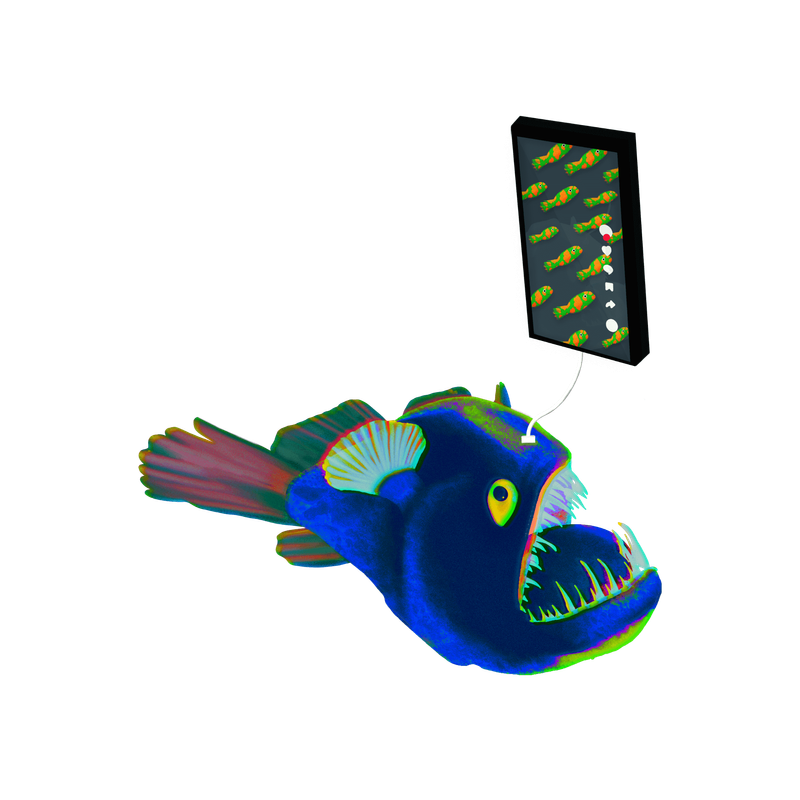Posthumanism is a relatively new term, having entered academic discourse in the mid-1990s, and from the beginning, it has borne several, sometimes divergent, meanings. Carey Wolfe, in What is Posthumanism?, addresses this polysemy by tracing posthumanism’s lineage back to two distinct ancestors. The first lineage dates back to the 1960s with Foucault’s famous statement in The Order of Things that “man is an invention of recent date. And one perhaps nearing its end.” The human, Foucault claims, is not something essentially given, but a relatively new concept and one not made to last. This posthumanist lineage thus concerns the human as a historical product. It concerns a concept that has been assumed for the longest time to occupy a privileged position in our theorizing; yet, Foucault foresees a time when the human will be altogether erased, “like a face drawn in sand at the edge of the sea.”
The second posthumanist lineage is traced back to the Macy conferences from 1946 to 1953. Wolfe describes these conferences as an effort to develop “a new theoretical model for biological, mechanical, and communicational processes that removed the human and Homo sapiens from any particularly privileged position in relation to matters of meaning, information, and cognition.” Similar to the first lineage, cybernetic theory displaces the human being from its once thought privileged position. These two lineages, which we could designate the philosophic and scientific, contribute to the advent of posthumanism by claiming that the human is an outmoded concept. Recognizing this fact, the work of posthumanist science and philosophy would thus be to analyze and hasten the human’s conceptual extinction.
Another iteration of posthumanism, insofar as it, too, attempts to overcome the human in some sense, is transhumanism. Nick Bostrom, in “A History of Transhumanist Thought,” catalogs the ways in which technological advancements are poised to change the human radically, for example, by eliminating aging and disease, uploading the brain to a computer [SIM], or making space colonization affordable. Transhumanists study the philosophical, ethical, and political ramifications of such technologies, viewing their advancements as offering “genuine improvements in human well-being and human flourishing.”
To be a paladin of human flourishing might appear to be an incontrovertible position, for who would assert the opposite? The improvements sanctioned by this lineage of posthumanism, however, remain mired in a humanist agenda. Bostrom’s consistent appeal to notions of human improvement and perfection as well as his statement that transhumanism has its roots in rational humanism reveals this philosophy to be less a posthumanism than a super-humanism. As long as this strand of posthumanism remains entrenched within a humanist tradition that is committed to realizing the perfect human and committed to the ideals that constitute humanism, such as reason, equality, and freedom, then the most radical technological innovation will not be able to advance the posthumanist or transhumanist cause. What is needed, rather, is a radical innovation in thought.
I will argue that we find just such an innovation in the magnum opus of the Left-Hegelian Max Stirner. For all of the clarity that Wolfe brings to the investigation of posthumanism, this paper will challenge the genealogy that he presents: the conceptual beginnings of posthumanism occurred far before the 1950s and 1960s—the beginning, in fact, is to be found more than a century earlier. In 1844, Stirner publishes Der Einzige und sein Eigentum and delivers a criticism of the human to such an extent that, at the end of it, there is nothing left. (Remark on beginning the book with notions of nothing) The human as such has been obliterated. Any appraisal or statement of posthumanism, then, must account for Stirner’s work. In the first part of this paper, I will present Stirner’s historical account of modernity, which reveals the human to be a concept constructed to be a substitute for God; in the second part, I will present Stirner’s criticism of the concept of the human, especially as it involves the concepts of equality and freedom. His criticism reveal, on the one hand, what is required for a true posthumanist philosophy or politics, and, on the other, the limitations and dangers of the transhumanist attempts to perfect the human through technological innovation.
I. Humane Liberalism
Max Stirner’s The Ego and Its Own is divided into two parts: “The Human” and “I.” The first part of the text presents a history that begins from the ancients and ends with Stirner’s present moment. He presents his history in two ways. First, he uses human life as an allegory for the way thought evolves from childhood to youth to man (Mann). Each of these stages of life represents a period in the development of human history: the child represents the realism of the ancients, youth the idealism of modernity, and man the egoism that overturns modernism. Stirner sees his present age, not as the mature adult, but in a state of arrested development, as still in its youth. The human life metaphor allows Stirner to present a synopsis of his historical account, which he will elaborate in the following section. There, Stirner develops the passages from ancient realism to modern idealism in detail, and, with respect to modernism, he articulates several stages that it passes through, culminating in humane liberalism.
Before reaching this stage, however, we begin as children, as ancients, as realists.
Stirner presents the child realist as the one who desires to get to the bottom of things, to pursue objects and what lies behind them: the child’s desire is a desire to master the world. External forces, however, often thwart this desire—at least until it leads the child to the discovery of Geist, to that which is entirely beyond objects and their forces. Stirner characterizes this transition from childhood to youth, from antiquity to modernity, as moving from the thought that God created the world to probing the “depths of the Godhead itself,” of asking no more about the truth of the matter, but now of the truth itself. For the youth, the object is no longer sufficient to explain reality, and she pursues, instead, the spiritual.
Stirner devotes the bulk of his analysis to the several stages that modernism passes through, which betrays the fact that modernity is not content once and for all, but always fails in its attempt to attain Geist: the discovery of spirit is always also the discovery that I am not spirit. That is, I am not what I hold in highest esteem; I am not God and I am, therefore, woefully incomplete.
Stirner notes the different configurations of this less-than relationship and the attempt to overcome it in the development of modernity. For this reason, the Reformation stands as a significant turning point, because it topples the hierarchy of the Middle Ages for the first time. Stirner points out the Middle Ages attempts to bridge the hierarchy between human sensibility and divine supersensibility by chastening the body through various practices. Yet, Luther pointed out that taming the sensual body in order to comprehend the divine was impossible, like exercising the feet year in and year out in dancing with the hopes that in this way one would learn to play the flute. With Luther the perception dawned, Stirner writes, “that truth, because it is a thought, it is only for the thinking man. And this is to say that man must henceforth take an utterly different standpoint, namely, the heavenly, believing, scientific standpoint, or that of thought in relation to its object, the—thought—that of mind in relation to mind.”
I have briefly laid out these transitions of modernity and the importance of the Reformation in Stirner’s history, because he sees humane liberalism as a continuation of it, as only its most recent effort to capture spirit. Therefore, even though humane liberalism advocates rationality over religious dogma, promoting equality among humans and freedom of thought, Stirner sees all of this still indelibly tainted by religion. He writes, “Liberalism simply brought other concepts on the carpet; human instead of divine, political instead of ecclesiastical, ‘scientific’ instead of doctrinal, or, more generally, real concepts and eternal laws instead of ‘crude dogmas’ and precepts.” Liberalism—which takes form first as political, then social, and finally as humane—attempts to reconcile human and spirit once and for all.
Political liberalism strives to abolish the inequality between masters and servants. The state or nation gains power rather than individual masters, thereby granting political freedom to all of its citizens. Stirner writes: “No more distinction, no giving preference to persons, no difference of classes! Let all be alike! No separate interest is to be pursued longer, but the general interest of all. The state is to be a community of free and equal men.” Although this form of liberalism achieves political freedom by taking away individual privilege, inequality still exists in terms of property, which ushers in the second form: social liberalism.
Whereas political liberalism calls for the equality of all in terms of sovereign rule, social liberalism extends this equality to society, claiming that one is not truly equal unless property is also distributed to all fairly. Stirner writes, “Let us then do away with personal property. Let no one have anything any longer, let every one be a—lumpen. Let property be impersonal, let it belong to—society.”
But the gain of political and social equality still does not realize liberalism, however, for self-interest remains in terms of ideas and opinions. I may still have my God, my religion, my beliefs, all of which I serve individually. But humane liberalism aims to end these individual beliefs, for “godlessness [is] at the same time freedom from prejudice: for with the master the servant falls away; with possession, the care about it; with the firmly rooted God, prejudice.” To hold belief in common, humane liberalism aims to eradicate the personal belief in God, which causes discord inasmuch as different religions have different beliefs. Whereas religion separates and differentiates people based on their personal beliefs, objective knowledge, pursued by criticism and science, is not something that one holds individually but which is held in common.
In sum, political liberalism aims to overcome the command of aristocrats and monarchs by submitting all to the law of the state or nation; but social liberalism recognizes that even if all were equal before the law, they were not equal in terms of society and thus made property something held in common; finally, humane liberalism sees that ideas and opinions were still held in private and thus makes them something to be held in common by locating truth and opinion exclusively in the human realm. Truth, no longer to be found in religion or in one’s own God, thus became available to all and a privilege of no one.
Stirner, however, in his analysis of each stage of liberalism, does not only present his immanent historical critique of the realization of freedom and equality, but also offers a transcendent one, in that freedom and equality are only won at the expense of the individual. Political freedom is only gained if I submit to the state. Stirner writes, “‘Political liberty,’ what are we to understand by that? Perhaps the individual’s independence of the state and its laws? No; on the contrary, the individual’s subjection in the state and to the state’s laws.” Likewise, socialism secures the right to equal property only at the expense of total dispossession. In order to secure such equality, I am required to forfeit my property to society. Everyone must become lumpen. Humane liberalism fares no better: I must sacrifice my own thoughts and opinions, my God and my beliefs to become truly human. “But,” Stirner writes, “as nobody can become entirely what the idea ‘human’ imports, the human remains to the individual a lofty other world, an unattained supreme being, a God. But at the same time this is the ‘true God,’ because he is fully adequate to us—namely, our own ‘self’; we ourselves, but separated from us and lifted above us.”
This remark, which concluded the first part of Stirner’s book until he was forced to add a Postscript addressing new arguments by Bruno Bauer, reveals how much liberalism, and even in its most recent humane variant, has not escaped the pitfalls of modernity; its Christian beginnings, in which a chasm divides material and divine, has not been overcome—it’s merely refigured. What I hope to suggest by providing this explication of Stirner’s history of modernity is how much the idea of human (and humanism) remain indebted to this religious ground. If the beginning of modernity is marked by the estrangement of the individual from God, then humane liberalism is the estrangement of the individual from the human. Stirner’s insight becomes relevant for us precisely when we recognize that a fundamental aspect of humanism is that it requires the individual to become human, even though it is impossible to do so. The transhumanist position is humanist precisely in this way: nano-bio-info-cogno technologies produce the idea of the perfected human, a human which you or I must become. In the following section, what I hope to show is that this way of thinking consistently results in the individual’s subordination to this idealized human, which thereby short-circuits any intention to increase freedom and equality, flourishing and well-being. Indeed, inasmuch as I am not yet the human I could become, I am not as perfect as I could be, I am possessed by a spook and a fixed idea. Spook and fixed idea: these are the terms Stirner employs in his criticism of the human, to which I will now turn.
II. Obliterating the Human
Modernity, in its earliest Christian iteration to its most recent appearance in liberalism, is beset by the spook. Spirit, as the essence sought behind things, is nothing more than a spook, the specter mistaken for reality. Stirner gives the following chilling description:
What haunts the universe, and has its occult, ‘incomprehensible’ being there, is precisely the mysterious spook that we call highest essence. And to get to the bottom of this spook, to comprehend it, to discover reality in it (to prove the ‘existence of God’)—this task men set to themselves for thousands of years; with the horrible impossibility, the endless Danaid-labor, of transforming the spook into a non-spook, the unreal into something real, the spirit into an entire and corporeal person—with this they tormented themselves to death. Behind the existing world they sought the ‘thing in itself’, the essence; behind the thing they sought the un-thing.
The project of unifying the human and the divine is the attempt to transform spirit into the concrete. Considering the injustices committed on behalf of religion in its pursuit of the divine, one might think that it is the most pernicious spook; however, Stirner asserts, “The most oppressive spook is the human.”
Indeed, he claims that the human itself has become the latest religion, because “it makes what is mine into something otherworldly, because in general it makes some of what is mine, out of my qualities [Eigenschaften] and my property [Eigentum], alien—namely, an ‘essence’; in short, because it sets me beneath the human, and thereby creates for me a ‘vocation’ [Beruf].” This process of reifying the human into something higher than the individual, something to which the individual must aspire as a vocation, is the process whereby the human becomes a spook. The human becomes something that is not granted to me, but something which becomes my job (Beruf), an end for which I have to work. In short, I am not human by virtue of what I am, but in virtue of conforming to a certain ideal of humanity, to what I can become. But if I fail to do my job, then I also fail to become human. Stirner emphasizes, though, that because humanity is a spook, it is impossible to realize. No matter my efforts, I can never truly be human. Humanity is the boss that is perpetually dissatisfied.
The human as vocation or Beruf occurs throughout the text; however, it is a concept that scholars have regularly overlooked. Yet, the concept of vocation plays a significant role in Stirner’s work, because the human, as vocation, reinstitutes the chasm between the material and divine that humane liberalism had sought to upend. Indeed, human vocation is identified as a form of religious sacrifice that has only become less crude over time. If the human stands over the individual as something she must become, then she is possessed by it. How, though, can one be possessed by the idea of the human?
The “fixed idea” is an idea that possesses. The spook and fixed idea each emphasize different aspects of the same thing; the former connotes its unreality and the latter its subjective power. But how can the unreal have a subjective power? How can the human, if it is a fabricated concept or ideal, one of recent invention, have such power over the individual? Stirner says that the individual gives it this power herself. The fixed idea subjects the individual only because the individual has renounced herself, has given herself over to it. The idea of the human, then, subordinates the individual, because the individual subjects herself to it. Stirner writes that this self-renunciation and self-negation begin “right where an end ceases to be our end and our property [Eigentum], which we, as owners, can dispose of at pleasure; where it becomes a fixed end or a—fixed idea; where it begins to inspire, enthuse, fanaticize us; in short, where it passes into our stubbornness and becomes our—master.” When I determine my purpose to become human, when it motivates my actions and gives my life significance, I have thus submitted myself to its will. When the human is viewed as a perfected state, as something to be achieved, something desired over all else, then I become possessed by it.
One might object that Stirner misses the mark, for why would anyone subject herself to a fixed idea? Why would one commit the self-renunciation described above? The very logic of liberalism requires it: anyone who is part of a liberal regime must renounce herself to some extent. The very act of living in a state entails self-renunciation, i.e., the submission to fixed ideas and spooks. In humanism, this submission takes place in unexpected ways. Two of the most important have already been mentioned, that is, through equality and freedom. We give ourselves to becoming human because we think it promises the highest forms of equality and freedom, because it promises greater happiness. Stirner’s criticism, though, demonstrates that at the outset, for the sake of freedom and equality, the individual must ironically renounce herself. Moreover, the attempt to gain freedom and equality produces results contrary to their intention.
In liberalism, equality is the denial of any kind of special right, any kind of claim that is contrary to the human in general. Stirner writes, “Humane liberalism goes to work radically. If you want to be or have anything special even in one point, if you want to retain for yourself even one prerogative above others, to claim even one right that is not a ‘general right of the human,’ you are an egoist.” Humanism promotes such a view because only by adhering to it can equality be granted to all humans. If someone could claim a right or privilege that another did not have, then there would not be equality and the possibility of causing the dispossessed person detriment would remain. But Stirner finds such reasoning absurd: “I want to be all and have all that I can be and have. Whether others are and have anything similar, what do I care? The equal, the same, they can neither be nor have. I cause no detriment to them, as I cause no detriment to the rock by being ‘ahead of it’ in having motion.” The attempt to predicate equality of all humans is an absurd proposition, because each person is different in mind and body. Moreover, this simple fact of difference is not the cause of detriment or injustice. On the contrary, the only certainty of detriment in this equation is caused by the call to equality, for it requires one “to renounce all ‘being ahead,’ the strictest form of renunciation.” For the sake of general equality, one must renounce oneself, one’s own singularity.
Furthermore, if equality is asserted on the basis that we are all human, then it is being predicated upon “the slightest thing about us.” Being human is one of his many qualities, just as, Stirner says, being a living being, a European, a Berliner are some of his qualities; but they are just that, qualities and not him. Equality remains at a general level that cannot penetrate to the individual. For this reason, Stirner thinks that equality is superficial, since it treats you and I as nothing but concepts of humanity. Since it cannot reach the individual, it requires self-renunciation. Freedom, ironically, also requires a form of self-renunciation.
“For the humanists, freedom meant the destruction of religion, the deification of humanity, and the elevation of speculative philosophy and science as the arbiters of morality and truth.” In the promotion of this new kind of freedom, a new kind of submission was also required. Like the human, freedom is a spook, another fixed idea to which the individual must submit, if the human is to be free. Indeed, because the individual subjects herself to this new ideal, she does require freedom, at least enough to complete this “voluntary servitude.” In this sense, Stirner underscores Goethe and Hegel’s elevation of servitude to the highest freedom. “He who only serves the cause, ‘devotes himself to it,’ has the true freedom. And among thinkers the cause was—reason, that which, like state and church, gives—general laws, and puts the individual man in irons by the thought of humanity.” Only the idea of the human can enjoy absolute equality and freedom, if an individual wants to become human so she can enjoy them, too, then she must renounce herself.
Employing the categories of negative and positive freedom, we can further identify two general criticisms of freedom in Stirner. The criticism of negative freedom is as follows: even if one is free from some kind of coercion, one is not consequently free. Stirner describes this negative concept of freedom as a being “rid of.” If freedom only consisted in being free from or rid of, it would have no positive content. Hence the name. Moreover, the freedom that only attempts to rid one of certain things inevitably institutes new limits in their stead. Stirner argues that the liberal who desires that the human be free from blind credulity and faith invites the limit of brute force, and wanting to be free from that, the liberal who calls for a lawful republic, which rids the human of this brutality, at the same time invites a new sovereign majority. As long as freedom is only recognized in its negative sense, an adequate conception of it can never be reached; however, even in its positive sense, freedom remains a spook.
Positive freedom demands something more substantial than “being rid of.” In liberalism, positive freedom can take the form as the particular freedom for political participation, for enterprise, or for criticism; however, the desire for a particular positive freedom always also entails the “purpose of a new dominion.” So, as seen in the history of modern liberalism, the demand for political freedom entails the state’s dominion, the freedom of enterprise society’s dominion, and criticism the human’s dominion. In each, one gains freedom only at the expense of instituting a new master, a new regime. Stirner anticipates that one might object to his argument, asserting that this or that freedom is not desired, but the whole of freedom. Stirner rejoins, “Well, then leave off chasing after the phantom, and spend your pains on something better than the—unattainable.”
The vocation to become human, to attain the height of equality and freedom, is to chase after the unattainable, to chase spooks, and, in so doing, to become their servant. To the contrary, Stirner maintains, “A human is ‘called’ [berufen] to nothing, and has no ‘calling’ [Aufgabe], no ‘destiny,’ as little as a plant or a beast has a ‘calling’ [Beruf].” Stirner’s arguments suggest that any philosophy that institutes a human calling, which asserts that you or I are not yet perfect but stand in need of modification, enhancement, improvement, rests on a humanist foundation that can only reinstate structures of domination and self-renunciation. If transhumanism maintains that a human must, in Anders Sandberg’s words, “advance to the highest levels,” it turns the human once again into a spook, by which we are possessed. Therefore, what is needed for a true posthumanism is a philosophy that is not grounded on the concept of the human, and which, in rather, aims at its destruction.
Although Stirner’s development of his own posthumanist or proto-posthumanist philosophy and politics, which relies on the ego, is provocative, it is not altogether satisfying. For example, he writes, “One seeks for himself, consequently one does not yet have himself; one aspires toward what one ought to be, consequently one is not it. One lives in longing and has lived thousands of years in it, in hope. Living is quite another thing—in enjoyment!” Against the continuous effort of becoming human, of an indefinite process of perfection, Stirner proposes the simple enjoyment of life. Such a proposal, I admit, ostensibly appears untenable and utterly facile. But enjoyment, to be fair, is a metonym for his entire edifice of the owner, ownness, and the unique one, which correspond positively to the critical concepts of spook, fixed idea, human. What, then, is most provocative about the unique one is that, in order to avoid the pitfalls of modernity and liberalism, it cannot be a concept. The non-conceptualizable ego doesn’t fall prey to any of the pitfalls mentioned above, precisely because it is not ideal, it has nothing to aspire to, it is not absolute—it is, rather, the radically unique one. Although this gesture to Stirner’s positive philosophy is hopefully provocative, further development is beyond this paper.
Nevertheless, I hope I’ve been successful in three things. First, I hoped to have presented some of Stirner’s criticism of the human and humane liberalism, making clear why a truly posthumanist philosophy cannot rely on this concept any longer. Second, I have attempted to show how Stirner is useful for criticizing the transhumanist position, not in rejecting technology tout court, but in an ideology that posits the perfect human. Finally, I think that Stirner’s incisive and total criticism of the human compels us, contrary to Wolfe’s genealogy, to recognize him as one of the first posthumanists and Der Einzige und sein Eigentum as an incunabulum of posthumanism.
Details
“Max Stirner’s Der Einzige und sein Eigentum: An Incunabulum of Posthumanism.” After Us. Perspectives on Humanism, Posthumanism, and Transhumanism. (Stevens Institute of Technology, NJ: January 2013)





